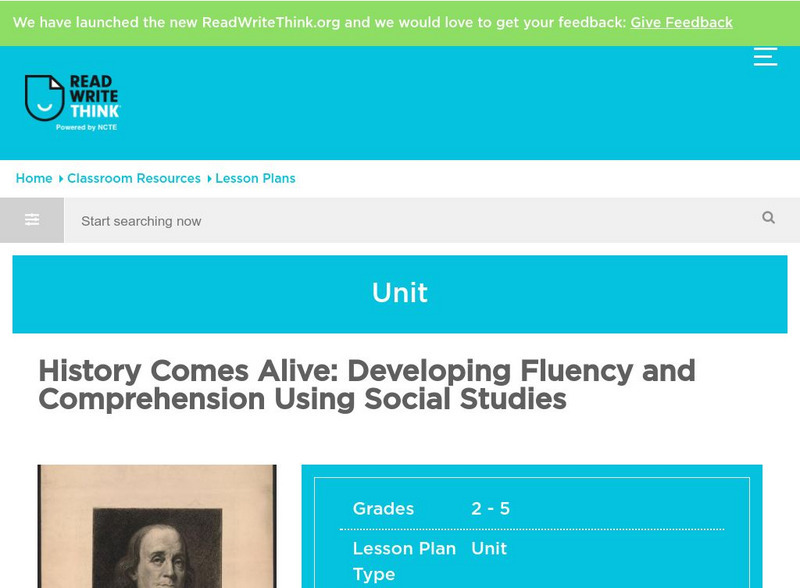Hi, what do you want to do?
Curated OER
Primary Sources
Students write personal facts on a photograph of themselves to create a Primary Source. They then define Primary Source and list examples as a class of places where they could find primary sources. They also discuss the importance of...
Curated OER
A Lion's Lair
Students evaluate the likelihood that a particular animal lived in a particular habitat. They research and illustrate lion habitats to determine whether lions were likely to have lived in ancient Greece.
Curated OER
Rock Art and Ritual
Students explore, examine and determine what kinds of rock art motifs are likely the product of ancient ritual descent. They identify connections between rock art symbolism and Native American ritual practices. Each student also views a...
Other
Daniel J. Kurland: Critical Reading: Inference: Reading Ideas as Well as Words
This college instructor offers his insights into critical reading and how to develop skills to interpret as well as comprehend the written word. RL.9-10.1, RL.11-12.1, RI.9-10.1 textual evidence and inference.
Sophia Learning
Sophia: Critical Reading as a Learning Strategy
This tutorial focuses on critical reading using a downloadable PowerPoint presentation, "Critical Reading 101," which includes separating fact from opinion, 6 propaganda techniques, and 6 common fallacies in reasoning. Also provided is...
Other
Into the Book: Inferring: Using the Clues
Watch an introductory tutorial about inferring during reading, and then choose from several different types of texts to practice using the skill.
Reading Rockets
Reading Rockets: 103 Things to Do Before/during/after Reading
The highly-respected Reading Rockets program offers both teachers and students a toolkit of ways to connect more actively with the materials they read. Some of these techniques are specifically for fiction-reading, others are designed...
Scholastic
Scholastic: Getting Started With Guided Reading
How do you get started with guided reading? At this site one can find the answer to this question. The online lesson plans will help get students started with guided reading.
Read Works
Read Works: The Scientific Method
[Free Registration/Login Required] This nonfiction passage lists steps in the scientific method. This passage reinforces essential reading comprehension skills. Opportunities for vocabulary acquisition are also included. Several...
ReadWriteThink
Read Write Think: Background for the Graphic Novel Persepolis: A Web Quest on Iran
This lesson focuses on learners researching and learning about Iran's culture, society, and leadership before and after the 1979 Revolution in preparation for reading the graphic novel Persepolis. Students work in small groups to...
E Reading Worksheets
E Reading Worksheets: Narrative of the Life of Frederick Douglass
In this learning module, students will engage in a deep study of Narrative of the Life of Frederick Douglass. Worksheets, that assess reading comprehension and inferencing skills, and map projects are provided to reinforce Fredick...
E Reading Worksheets
E Reading Worksheets: Inferences Worksheets
In this learning module, students will learn more about making inferences. Worksheets are provided to reinforce the skill of making inferences. This module is designed to support Tier I, Tier II, and Tier III students.
Better Lesson
Better Lesson: Introduction to Making Predictions and Inferences
First graders will engage in a shared reading of "Mr. C's Dinner" so that we can build a foundation for understanding what it takes to make good predictions and inferences.
Better Lesson
Better Lesson: Using Word and Picture Clues to Make an Inference
First graders will use text evidence to make inferences about word and word phrase meanings in a text. Word and picture clues will be used to help students form inferences.
AdLit
Ad lit.org: Classroom Strategies: Inferential Reading
Teaching students to "read influentially" helps them learn how to read more strategically. This technique is derived from the teaching model that learners develop knowledge via the process of interpreting new information in light of past...
PBS
Pbs: Multiple Methods of Reading Instruction
This article surveys three strategies to incorporate into classroom repertoire. They include guided reading, choral reading, and readers' theater.
Scholastic
Scholastic: Test Skill Builders for Reading: Making Judgments [Pdf]
Standardized test practice for students in grades 5 and 6. Students read a practice passage and answer questions that require them to make judgments about such things as fact or opinion and the author's purpose. Answers to the practice...
TES Global
Blendspace: Be a Reading Detective! (Inferencing)
A six-part learning module with images and websites that students can use to build inferencing skills.
Education Development Center
Tv411: Tune in for Reading: Reading: Strategies for Better Reading
Self-checking interactive tutorial puts reading comprehension skills to work by asking learners to make inferences, predict what happens next, and identify the main ideas in a series of short reading passages. Related materials include...
Austin Independent School District
Austin Independent School: 10 Major Types of Inference in Literature [Pdf]
This printable instructional activity helps students recognize the difference between an implication and an inference. Students are presented with quotes from the text and they practice with each of the ten types of inference: location,...
Scholastic
Scholastic: Informational Text: Reading Response: Claim Evldence Reasoning [Pdf]
This graphic organizer can be used with students when they read informational text. Students will identify a claim, list text evidence that supports the claim, and explain how the information can be used for their future understanding of...
SMART Technologies
Smart: Web Resources for 3 5 Reading and Language Intervention
Tons of online resources for reading and language skills compiled nicely into a student-friendly SMART Notebook file.
ReadWriteThink
Read Write Think: History Comes Alive: Developing Fluency and Comprehension
Let the power of imagination and inference serve as a "time machine" to bring Benjamin Franklin into the classroom! History and science come to life in a dialogue with Franklin the inventor, developed through lesson activities that...
Other
Wisconsin Educational Communication Board: Into the Book
This series of videos and interactive activities provide an excellent set of resources for teaching or learning the 8 research based reading strategies provided here. After receiving your "key" you can investigate the features inside and...








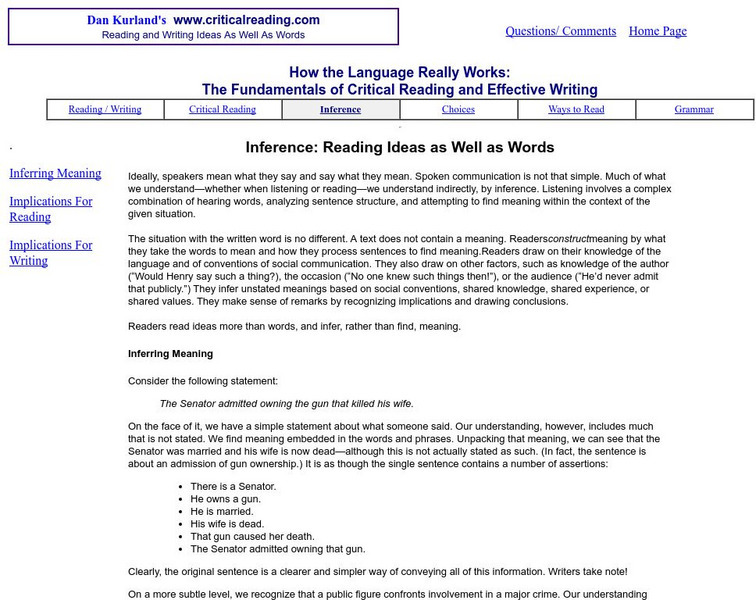



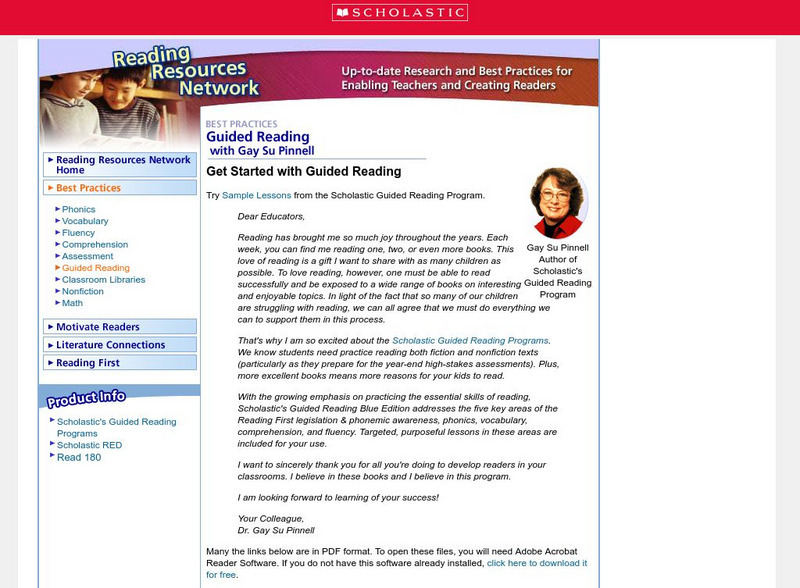
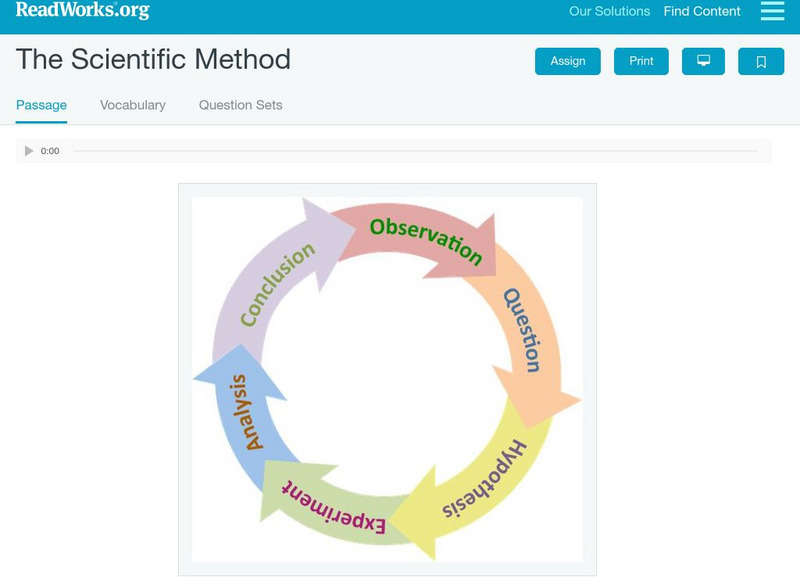






![Scholastic: Test Skill Builders for Reading: Making Judgments [Pdf] Unit Plan Scholastic: Test Skill Builders for Reading: Making Judgments [Pdf] Unit Plan](https://content.lessonplanet.com/knovation/original/480321-6f12644c5ef0c583c0ed15abcd563c89.jpg?1661251115)
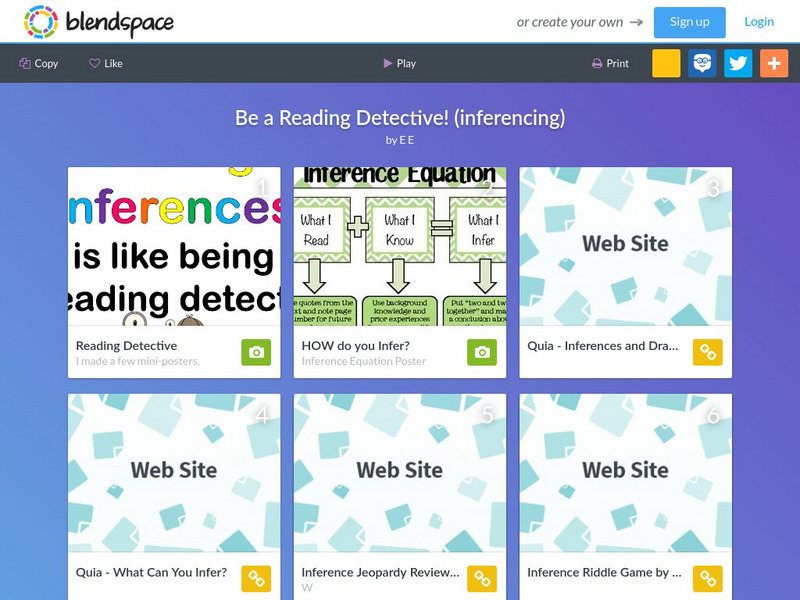
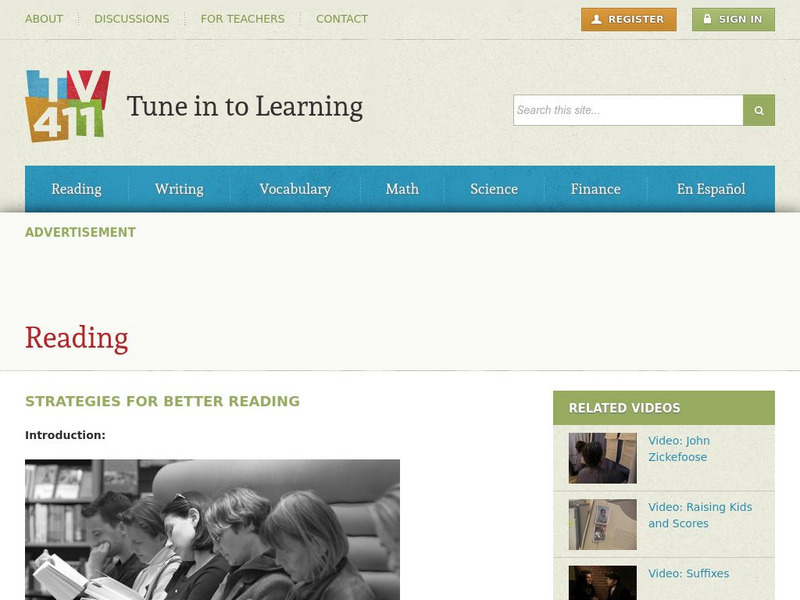
![Scholastic: Informational Text: Reading Response: Claim Evldence Reasoning [Pdf] Graphic Scholastic: Informational Text: Reading Response: Claim Evldence Reasoning [Pdf] Graphic](https://content.lessonplanet.com/knovation/original/244734-74184753ee53d6872b10ba36f1639585.jpg?1661510818)
